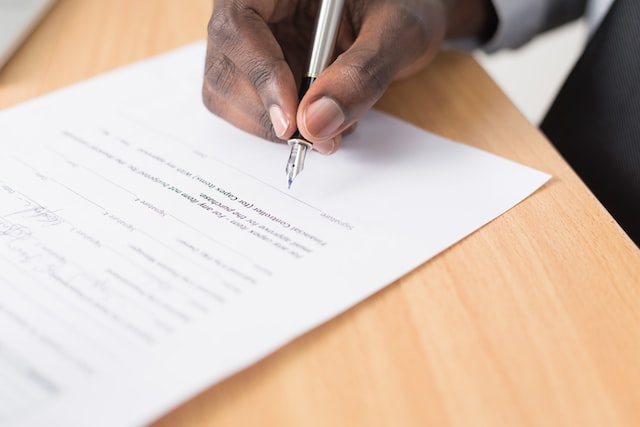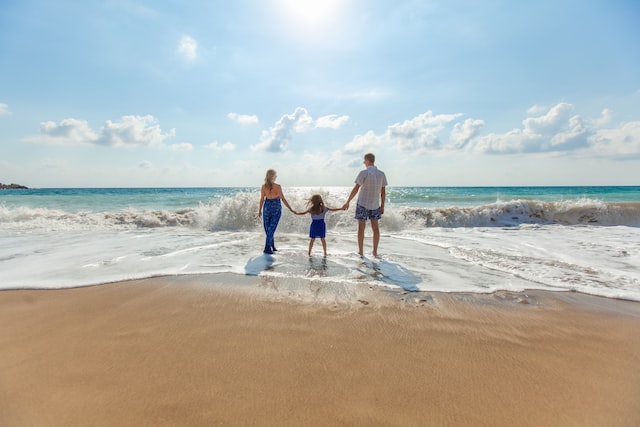
8 Essential Factors to Consider Before Investing in Overseas Real Estate

Purchasing overseas real estate can be a great investment, but there are many factors to consider before taking the plunge. From cultural differences and taxes to fixed expenses, there are several things that need to be taken into account before making a purchase.
In this article, we will discuss the different tips and factors that you should consider before purchasing overseas real estate. We will explore how cultural differences can affect your decision-making process as well as what kind of taxes and fixed expenses you should be aware of when buying real estate abroad.
Check out these beautiful properties in Turks and Caicos
Purchasing overseas real estate is a big decision that requires careful consideration of many factors. From the cultural differences to taxes and fixed expenses, there are many things to consider before taking the plunge.
Overseas Real Estate Investing Factors
Buying overseas real estate can be an exciting opportunity, but it’s important to consider a number of factors before making the purchase. Here are some things to consider before buying overseas real estate:
1. Legal and Regulatory Requirements: Each country has its own set of laws and regulations when it comes to buying property, and it’s important to be familiar with these before making a purchase. It’s a good idea to consult with a local lawyer to ensure that you understand the legal requirements for buying property in the foreign country, as well as any restrictions or limitations on foreign ownership.
2. Financing Options: Financing options for overseas property may be different than those in your home country. It’s a good idea to research the financing options available in the foreign country, and to understand the requirements for obtaining a mortgage, such as the required down payment, credit score, and income requirements.

3. Tax Implications: As mentioned before, owning overseas property can have tax implications in both the foreign country and in your home country. It’s important to understand the taxes that you will be subject to and to consult with a tax professional to ensure that you understand your tax obligations.
4. Currency Fluctuations: Currency fluctuations can affect the value of your investment, so it’s important to consider the potential risks and to understand how currency fluctuations may affect the value of your property.

5. Location and Property Condition: As with any property purchase, location and property condition are important factors to consider. It’s a good idea to visit the property in person to get a feel for the area and to assess the condition of the property.
6. Rental Income Potential: If you are planning to use the property as a rental income property, research the market and the demand for rental properties in that location and know the property management cost, and the seasonal trends in occupancy.
7. Language and Cultural Barriers: If you don’t speak the language or aren’t familiar with the culture of the country where you’re considering buying property, it can be challenging to navigate the buying process and to understand the local market. It’s a good idea to familiarize yourself with the language and culture as much as possible, and to work with people who can help you navigate any barriers.
8. Exit Strategy: It’s important to have a plan in place in case you decide to sell the property in the future. It would be ideal to have an idea of the conditions of the local real estate market, how long it takes to sell a property in that location, the potential sale price and the cost of selling.
By considering these factors carefully, you can make an informed decision and minimize your risks when buying overseas property. It’s always a good idea to consult with professionals in the field, such as real estate agents, lawyers, and tax experts, for guidance.
Life in the Caribbean can vary depending on the specific island or country, but in general it is known for its tropical climate, beautiful beaches, and laid-back lifestyle.

The Caribbean is known for its lush greenery and natural beauty, with many islands featuring rainforests, mountains, and waterfalls. The beaches are a major draw for visitors, with many islands offering white sand beaches, crystal-clear waters, and excellent snorkeling and diving opportunities.
Caribbean culture is a mix of various influences, including African, indigenous, European and Asian, each island has its own unique culture, music, and cuisine.
The pace of life in the Caribbean is generally more relaxed than in more urban or fast-paced environments. Many people in the Caribbean prioritize family, friends, and community and enjoy spending time outdoors, socializing with their neighbors, and participating in local festivals and events.
However, living in the Caribbean can also come with its challenges. depending on the country or island, the economy may not be as developed as other more developed countries and the infrastructure may not be as strong, this can make it more difficult to find certain goods or services, and the cost of living can be high in some areas.
Additionally, Hurricanes can be a risk to the area, with many islands having a season that goes from June till November.
Overall, life in the Caribbean can be a rewarding experience for those who appreciate a slower pace of life, natural beauty, and strong community connections. It’s a good idea to visit the country or island you’re interested in to get a sense of the lifestyle, culture, and potential challenges before making a decision about living there.

We hope you enjoyed reading our blog about overseas real estate and that you received some value from it. If you have any questions about purchasing overseas real estate feel free to reach out and drop us an email on our ‘Contact Us‘ page. We would love to get to know you and answer your questions concerning purchasing overseas real estate.
